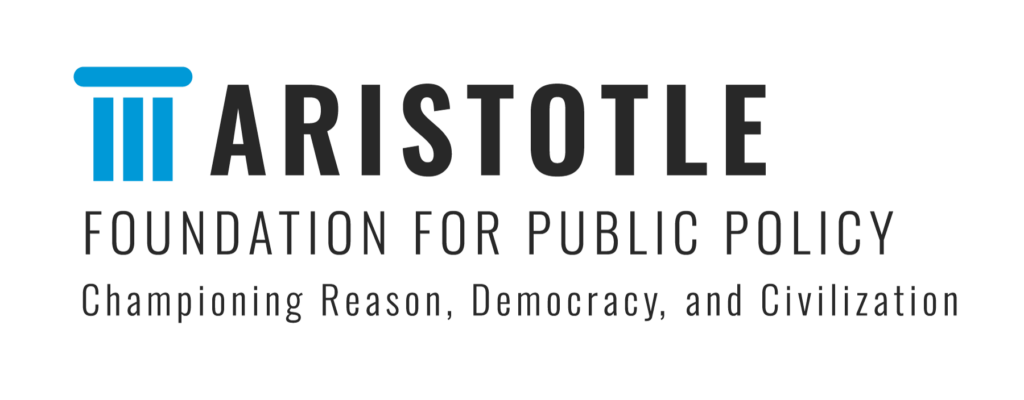

Mark Milke, National Review, April 14, 2024
“Thoughtcrime was not a thing that could be concealed forever. You might dodge successfully for a while, even for years, but sooner or later they were bound to get you.”
— George Orwell, 1984
Americans may wish to look up north to see how the latest attacks on free thought and expression are proceeding. In Canada, governments, universities, and self-regulating organizations regularly attack the core civil rights that have long allowed individuals in English-speaking democracies to flourish and innovate: the right to think and to speak.
One recent famous example is the College of Psychologists of Ontario, which harassed former Harvard and University of Toronto psychology professor Jordan Peterson because they didn’t like his tweets. They demanded that he undergo remedial social-media training. He refused, went to court, lost, and may lose his license to practice in Ontario.
There are many other instances in which free speech is being similarly suppressed in Canada. British Columbia nurse Amy Hamm, for instance, was persecuted by her own nurses’ association for her off-work sponsorship of a local billboard that endorsed the view of famed British author J.K. Rowling on gender-transition issues. Hamm’s disciplinary hearing ended this month. She might soon face the same choice as Peterson: Submit to Orwellian reeducation or give up her profession as a nurse.
In Calgary, in 2021, another professional lost her tenured job and career because she stood up for Enlightenment-inspired empiricism. Mount Royal University fired Professor Francis Widdowson — a Marxist with a long history of involvement with, sympathy to, and publications on Canada’s native population. Widdowson’s thoughtcrime? She pointed out that there was no such thing as “indigenous” knowledge but that facts and data, science, and the scientific method are available to all.
All of that has chilled the ability of Canadians to think, talk, and argue out loud lest they be cancelled, harassed, or fired.
And it’s getting worse. Now, thanks to Justin Trudeau’s federal government, prosecution and jail could be added to the list of consequences for free-speech “offences.”
In late February, the Liberal government introduced draft legislation in Parliament, Bill C-63. It purports to increase online protection for children. Officially named the Online Harms Act, that part of the legislation is laudable.
But what is not praiseworthy are the tacked-on provisions that will further restrict the rights of Canadians to speak, debate, and dissent. For example, the bill creates a “hate crime offence,” which in the eyes of government is “content that foments hatred.” Such hatred is defined in the bill as that which “expresses detestation or vilification of an individual or group” based on categories in the existing Canadian Human Rights Act.
For those outside Canada not familiar with the list, it’s all-encompassing: anyone “motivated by hatred based on race, national or ethnic origin, language, colour, religion, sex, age, mental or physical disability, sexual orientation, or gender identity or expression.” To helpfully define “hatred,” one aspect of the bill adds this clarification: “Hatred means the emotion that involves detestation or vilification and that is stronger than disdain or dislike.”
Note that in this case it’s not actions that are being outlawed but thought, the key word being the allegation that someone might be “motivated” by hate to speak against the cited list of groups. Note as well that a civil servant in the human-rights bureaucracy will now have a hand in deciding whether or not the accused has engaged in emotions “stronger than disdain or dislike” and is therefore potentially subject to a Criminal Code charge.
Just as alarming, when the hate-speech case arrives in court, as the Canadian Constitution Foundation notes, claims will be judged “on a mere ‘balance of probabilities’ standard rather than the criminal standard of proof beyond a reasonable doubt.” The bill will even “allow judges to put prior restraints on people who they believe on reasonable grounds may commit speech crimes in the future.” So future thoughtcrimes will be added to past thoughtcrimes as punishable Criminal Code offenses in Canada.
This will lead to a cornucopia of complaints, given that anyone will be able to file an anonymous complaint to the federal Human Rights Commission alleging that a “hate crime” has occurred. The commission in turn will be authorized to investigate, rule, and order “remedies,” including prosecution if the government-appointed body concludes that the accused is “motivated” by hate.
Consider a few examples of how this could play out.
Imagine that the atheist Christopher Hitchens were still alive and shredding theists of all persuasions. Hitchens regularly disdained Christians, Jews, Muslims, and others whom he thought were anti-reason. Suppose that Hitchens were in Canada speaking with “detestation” about a religious group or person and then that someone complained about the speech. Hitchens could be hauled in front of a human-rights bureaucracy, pronounced “guilty” of “detesting” said group or individual, and the Human Rights Commission appointees could then recommend that he be criminally charged.
Or ponder Douglas Murray, a British journalist who publicly disdains the sharia-supremacist strains of Islam and argues that they contribute to antisemitic murder cults such as Hamas. Would he be guilty of fomenting hatred against Muslims if his “disdain” was judged to be “detestation”?
Or consider that both Christianity and Islam have adherents who aim to convert each other and who believe in a literal hell. Preachers in both faiths think they have a duty to warn the unconverted of such an end (with adherents in the other faith presumed to be heading for Hades). Such preachers regularly and publicly express their views on hell.
If a preacher of either persuasion heads down that road, anyone could lodge a complaint with the Human Rights Commission. The federal bureaucrats would then be tasked with sorting out which preachers are motivated by the benevolent desire to save people from the netherworld (as they see it) and which are motivated by disdain or detestation.
Yet another example: Scottish prosecutors just decided not to charge British author J.K. Rowling of hate crimes under Scotland’s Hate Crime and Public Order Act, an exact replica of which Canada is now proposing (in Bill C-63). Rowling was placed under the legal microscope for her criticisms of comments by transgender activists and for simply “calling a man a man.” (Her sensible position: Some gender dysphoria exists. That does not justify having men in women’s shelters, bathrooms, or prisons, or on their sports teams.)
The proposed Canadian legislation contains wording that, in theory, might lessen the chances of a hate-offense Criminal Code conviction based on one’s supposed motivations. One bit of the bill clarifies that a hate-crime offense will not have been committed “solely because it discredits, humiliates, hurts or offends the victim.” But again, notice the language — “solely.” Also ponder the fact that Hitchens (were he alive), Douglas, Rowling, and others could still be subject to an investigation and prosecutorial recommendation.
Now imagine being an average Canadian, not famous, and without funds to legally fight the state’s not-so-kindly human-rights inquisitors: You could be forced to defend yourself in court over hate-crime charges involving your “motivation.”
To be clear, none of the examples I’ve cited involve violence or calls to violence — unlike the scenario that John Stuart Mill imagined when pondering the limits of free speech: an excited mob protesting outside the house of a corn-dealer, calling him a “starver of the poor.” That, Mills argued, is the kind of incitement to violence that should be restricted and punished.
Nor do my examples include the kind of actions and incitement by pro-Hamas mobs in American and Canadian cities that are physically restricting access to coffee shops, campuses, schools, skating rinks, synagogues, the Rockefeller Center Christmas tree, and in some instances calling for violence against Jews and even their annihilation.
Instead, with Bill C-63 it’s all about speech, thought, and intent.
In Canada, given our bureaucratic legal bent, anyone who, with their words, dared to follow J.K. Rowling’s lead would likely face the punishment set forth in Bill C-63: fines of up to $50,000 and/or life in prison. And this is in a country where criminals convicted of drug-dealing, property crime, and even violent offenses often receive only light-tap sentences.
I cited one George Orwell gem at the start of this column. Here’s another from 1984 that’s also relevant to the prospect of Canadians having to censor their own speech lest they be accused of having the wrong “motivation”: “There was of course no way of knowing whether you were being watched at any given moment. How often, or on what system, the Thought Police plugged in on any individual wire network was guesswork.”
It’s all very Orwellian — and now also all very Canadian. In the Great White North, thought, motivation, emotions, and speech are all about to be criminalized and potentially met with punishments once reserved for irredeemably violent offenders.
Mark Milke is the founder and president of the Aristotle Foundation for Public Policy and the editor of their first book, The 1867 Project: Why Canada Should Be Cherished — Not Cancelled.
Like our work? Think more Canadians should see the facts? Please consider making a donation to the Aristotle Foundation.

The logo and text are signs that each alone and in combination are being used as unregistered trademarks owned by the Aristotle Foundation. All rights reserved.
The Aristotle Foundation for Public Policy is a registered Canadian charity. Our charitable number is: 78832 1107 RR0001.
SUBSCRIBE TO OUR NEWSLETTER